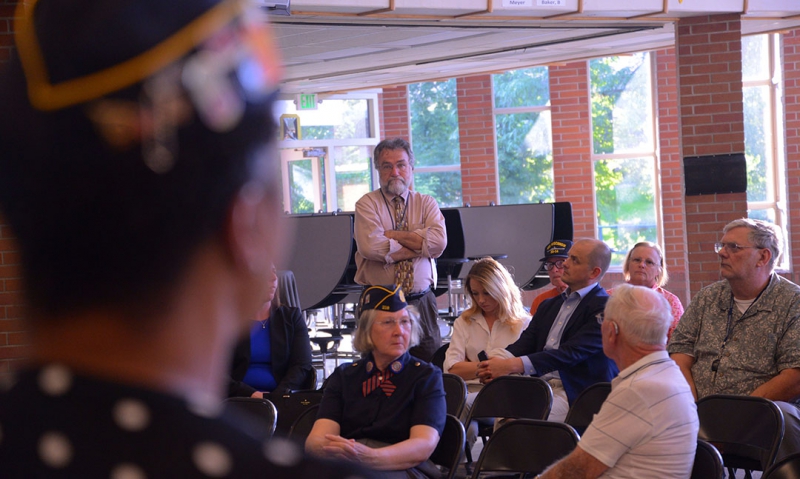
Veterans residing in Washington state rallied together to address concerns surrounding the VA medical Center in Walla Walla, Wash.
Attendees at the American Legion’s System Worth Saving town hall meeting in Walla Walla, Wash., on July 19 expressed sentiment concerning care received at the local Department of Veterans Affairs medical center (VAMC).
Long before recent calls to privatize VA began to surface, the Jonathan M. Wainwright Memorial VAMC in Walla Walla faced possible closure of campus facilities following a transition in services from inpatient care to outpatient treatment – supplemented by additional community care options.
Walla Walla VAMC Director Brian Westfield addressed concerns unique to the rural facility’s medical center and outlined current plans to enhance the campus and the Veterans Integrated Service Network (VISN). “We are a completely different facility compared to how we were,” he said. “We are much more engaged in community care.”
Westfield shared how difficult it has been to get local veterans to enroll for health care at the facility as he addressed the crowd of concerned veterans. Out of the nearly 63,000 military veterans residing in the area, only approximately 20,000 former servicemembers are enrolled in the system and using the VAMC for their primary care needs, he stated. The director also placed emphasis on programs and agreements in place that benefit under-served veterans in surrounding communities, including Native Americans, homeless veterans and veterans seeking care for substance abuse.
Veterans at the town hall all echoed the same sentiments, expressing how appreciative they are of the top-notch level of care they receive at local VA facilities. They also shared the same angst regarding the closure of the walk-in clinic.
Perry Roeder, a Marine Corps veteran and VA employee at the local call center, said it is hard to help veterans with issues they are having – especially with the Choice Program – while also advocating for his own health-care needs. “Years ago we had a 24-hour clinic,” he said. “If you were sick, you were able to get care right away. Now, we don’t want to go to the local hospital because it comes out of our pocket.”
Third generation Army veteran Johnathan Wyatt said one of his first priorities after concluding his military service was to enroll in VA. He added how a seamless transition to the VA and the great care that he receives made it easy to readjust to civilian life because he has one less thing to worry about.
“It distresses me to hear about maybe doing away with this facility,” said Ken Anderson, a veteran who served in the Navy before transitioning to and retiring from the Army. “The veterans need it. We need it!”
Although Anderson never enrolled with VA for health care, he felt that it was important to attend the town hall meeting. With tear in his eyes, he voiced his frustration with proposed plans to privatize VA. “I know many veterans who need VA health care,” he said. “It makes me cry. I don’t want to see it go away.”
Congressional staffers from the offices of Sen. Patty Murray (D-Wash.), Sen. Maria Cantwell (D-Wash.) and Rep. Cathy McMorris Rodgers (R-Wash.) assured local veterans that their offices were working hard to ensure current and future legislation drafted on Capitol Hill would reflect the needs of those who rely on the services they receive at the VA.
Tuesday’s town hall meeting was followed Wednesday by a System Worth Saving visit at the Jonathan M. Wainwright Memorial VAMC. During their meeting, VA leaders discussed the intricate challenges facing the system, including budget constraints, issues with the Choice program, and difficulty recruiting and retaining staff. Westfield identified the ever-changing roster of medical professionals as its main issue for veterans receiving care. These patients often slip through bureaucratic cracks while waiting for a new provider. Rural areas seem to have more difficulty hiring qualified physicians compared to their counterparts in other geographic locations, added Westfield.
Legion representatives were to meet with the VAMC’s women veterans program manager and military sexual trauma coordinators and conclude their SWS visit following trips to two local homeless shelters, presenting donations on behalf of Operation Comfort Warriors.
- Veterans Healthcare

